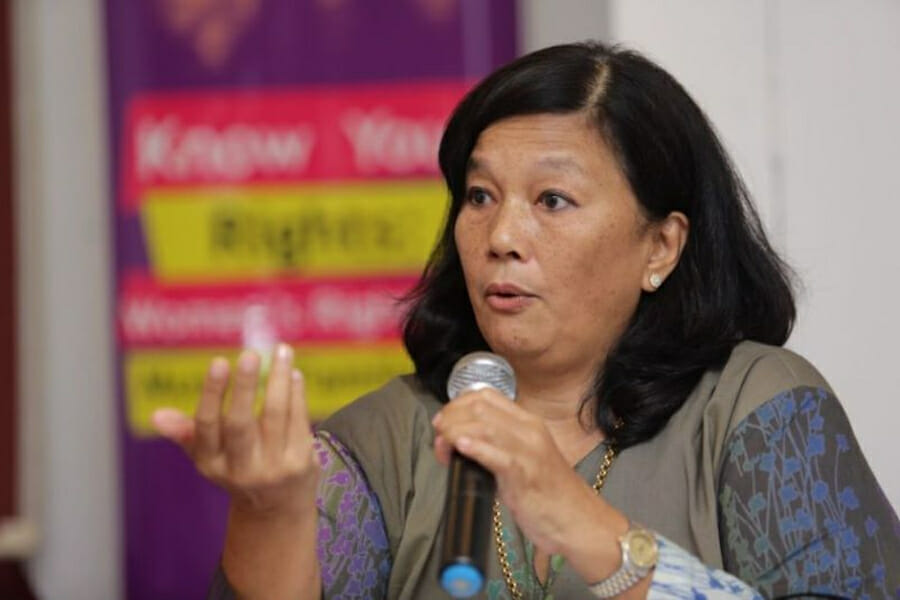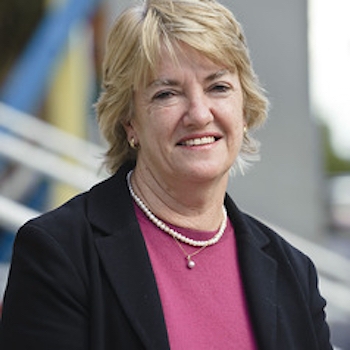
Women’s Rights in Malaysia
The mostly Muslim nation of Malaysia has always walked a fine line between protecting the rights of Malay women and acknowledging the role that Islam plays in the daily lives of its citizens. Yet many of the obstacles facing Malaysian society disproportionately affect women. These include endemic poverty, human trafficking, environmental degradation, a rise in the numbers of refugees, civil unrest, crime and a resurgent Islamic movement. Nonetheless in this mostly Muslim country of nearly 30 million people, by comparison with other Islamic nations, the fight for greater protection of Malaysian women’s rights has had some success.
This balance between a secular and sectarian society has largely been the result of Malaysia’s former prime minister, Mahathir Mohamad. In contrast to Malaysia’s largest neighbor, Indonesia, Mr. Mohamad did make significant concessions to Parti Islam se-Malaysia (PAS), Malaysia’s largest Islamic party, to placate religious conservatives. The emergence of politicized Islam has posed a challenge to civil society groups determined to uphold democracy, human rights, and women’s rights. Women groups in many Muslim countries are at the frontline in challenging the religious establishment and their justification of the subordination of women and discrimination against them. Yet their efforts are constrained by religious norms that make even basic women’s rights appear radical.
One Malaysian civil society group that has sought to challenge the long-held view that Muslim women should be subservient, submissive and should not have equal rights has been Sisters-in-Islam (SIS). SIS exists as a group of professional women who promote women’s rights within the framework of Islam. SIS believes that Islam does not endorse the oppression of women and that Islam has been misinterpreted in the justification of the cultural practices that make women inferior and subordinate to men.
For fundamentalists, SIS has been criticized that its agendas are the product of Western tradition, which is not transferable to Islam. And while the group has generally been well received outside of Malaysia, within Malaysia it is sometimes viewed as being an apologist organization for some more conservative traditions towards Malaysian women. In response to criticisms, Zainah Anwar, the founder of SIS argues, “I want an Islam that upholds the principles of justice, equality, freedom and dignity,” she said. “There is nothing contradictory between wanting these principles to guide and govern your life and being a good Muslim.”
Not surprisingly, the connection of Malaysian women’s rights to politics, gender identity and Islamization have pushed the progressive women’s groups to reach an understanding of Malaysian women’s rights that is consistent with the universal concept of human rights. Nonetheless the need to justify even basic rights for women suggests the struggle many women face in their daily lives. The temptation to give in, in order to ‘fit in,’ is evident.
For every group that tries to advance women’s rights in conservative societies there is inevitably a group that will push women back to their subservient corner. One group, the Obedient Wives Club, seeks to encourage Muslim women to follow the wishes of their husbands, which can include prostitution. The argument that groups like the Obedient Wives Club makes is that at the root cause of infidelity and domestic violence is the fact that Muslim women have failed to fully satisfy their husbands. Significantly it is not the perpetrators who are held accountable, but women themselves who are held to have failed in some way that has invited violence, thereby excusing men for their violent behaviour.
While the Obedient Wives Club has received a fair amount of criticism for its stance on domestic violence and prostitution as being a possible avenue to save many troubled marriages, its president, Rohaya Mohamed, argues that her group isn’t exclusively for Muslim women and that women of all faiths can join. Their ultimate goal is to counsel women about how to be better wives and how to make any fault in a relationship be that of women. “A man married to a woman who is as good or better than a prostitute in bed has no reason to stray. Rather than allowing him to sin, a woman must do all she can to ensure his desires are met,” suggested Rohaya Mohamed.
However, Sisters-in-Islam’s Ratna Osman notes this extraordinary argument provides justification for men’s violent behaviour, “Abusive men often use women’s behavior as a sick justification, but in the end, their actions are their responsibility.” National Public Radio reported in January of this year that the Obedient Wives Club has since moderated their positions on a whole host of issues after receiving significant pushback from Malaysian society.
“The group appears to have toned down its rhetoric since last year, when media quoted members as saying that wives should satisfy the sexual desires of their husbands like prostitutes. Club member Hajiera Hartley explains that the group is simply giving its members the basic information they request about sex and marriage. ‘Simple things like, how do people kiss. Honestly, the Malays do not know how to kiss,’ Hartley says.”
In the decades ahead, women’s rights in Malaysia will continue to be a contentious issue with religious leaders holding significant influence over governmental policy. This bodes poorly for women as history demonstrates that an increase in fundamentalists’ hold on power goes hand in hand with a degradation of women’s rights.
It is hoped that as civil society groups and in particular, women’s rights groups make inroads within Malaysian society they may be able to progress women’s rights. This will be highly dependent on their influence on all levels of government, the activism of civil society groups, and the support of local women’s organizations. Fundamentally it is also dependent on external transnational rights groups and organisations such as the UN stepping up the pressure for women’s rights. Censure by the global community is essential if women are to be viewed as equal citizens in any society.


